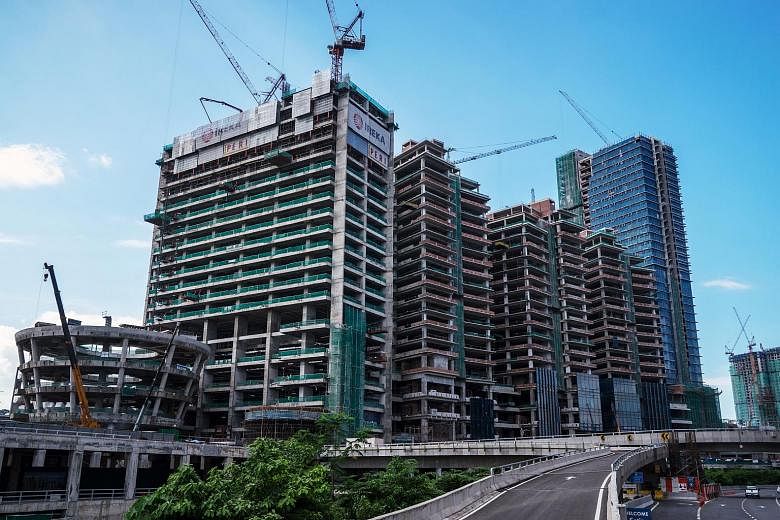KUALA LUMPUR • Malaysian construction, manufacturing, plantations and service industries say billions of ringgit in output are at stake as they reacted to the government's unexpected move to freeze all intake of foreign labour.
While the government was reacting to public controversy in its plan to import "1.5 million" workers from Bangladesh, the industry groups say that without new foreign workers, their industries will be badly hit.
Said Malayan Agricultural Producers Association executive director Mohamad Audong: "Without workers, billions of dollars will be left hanging on oil palm trees."
There is a shortage of 7,000 oil palm harvesters, he said. This translates to 4.5 million tonnes of palm fruit, valued at RM2 billion (S$669 million), left unharvested a year, he added.
Up to 25 per cent of the Malaysian workforce consists of foreign blue-collar workers.
The government on Friday unexpectedly froze, as a "temporary" measure, all new migrant labour intake after getting public flak for pushing to bring in Bangladesh workers at a time when the economy is slowing down.
The reaction from the industries?
Said Master Builders Association Malaysia vice-president A. K. Nathan: "There is a must and need for foreign workers and we can't do without them. The freeze would affect the construction sector badly."
Federation of Malaysian Manufacturers president Saw Choo Boon said "there is always a need to replace returning workers and, in some cases, a need for new workers to cater to increase in production".
Deputy Prime Minister Ahmad Zahid Hamidi announced the freeze on Friday, a day after Malaysian and Bangladeshi labour ministers signed an agreement for tens of thousands of workers to be brought to Malaysia.
The acting secretary of Bangladesh Expatriates' Welfare and Overseas Employment Ministry, Begum Shamsun Nahar, was quoted by Bangladesh newspapers yesterday as saying she believed the move was an "eyewash" to cool public anger in Malaysia.
Datuk Seri Zahid yesterday hit back at former trade minister Tan Sri Rafidah Aziz, a regular critic of the Najib administration, who said the flip-flop has damaged the government's credibility.
"The same former leaders had acted similarly for the people when they were in the government," said Mr Zahid, who is also Home Minister in charge of immigration.
"Now that they are no longer in power or holding any position, they are accusing the government of flip-flop."
Mr Zahid said last week that Malaysia had to bring in 1.5 million Bangladesh workers because Malaysians shunned the so-called "3D" - dirty, difficult and dangerous - jobs.
Human Resources Minister Richard Riot on Friday said the 1.5 million was the number of Bangladeshis who are keen to work abroad, but that not all of them would come to Malaysia.
Malaysia's workforce consists of 15.3 million people, including 2.1 million foreign workers.
Another 1.7 million foreigners are estimated to be working illegally in the country.
Most of the foreigners are from Indonesia, Myanmar, Bangladesh or India, while in Sabah most of them are from the Philippines.
THE STAR/ASIA NEWS NETWORK

